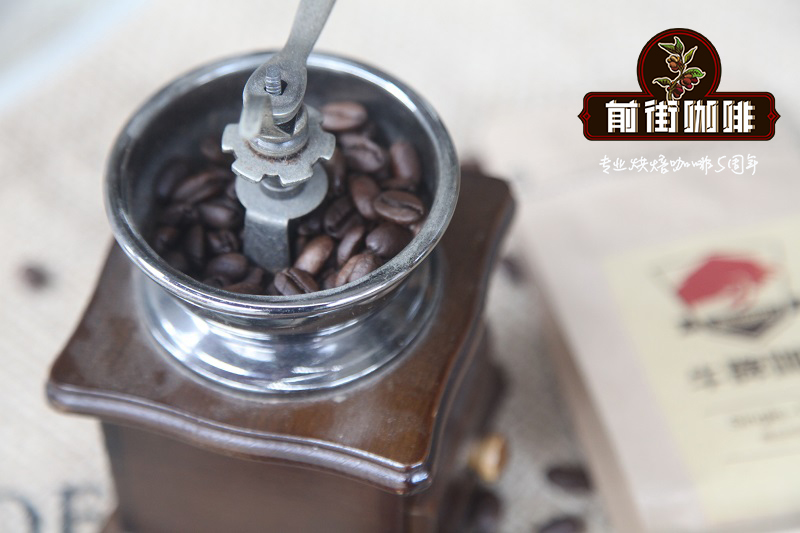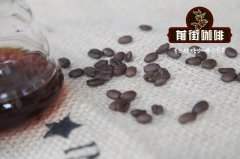Flavor and taste of washed beans in Kenya boutique coffee farm Nieli "Daroni treatment Plant"

Professional coffee knowledge exchange more coffee bean information please follow the coffee workshop (Wechat official account cafe_style)
Kenya boutique coffee farm beans Nieli "Daroni treatment plant" washed beans flavor and taste characteristics?
Kenya Nyeri "Ndaroini Factory"
[baking degree] medium and shallow baking / Medium Roast/ refreshing taste
The fruit-like sour taste is like the refreshing flavor of drinking fruit juice, but it has begun to feel like coffee.
Region: Nyeri, Karatina
Farmers: small farmers around Gikanda Peasants' Association
Variety: SL28 / SL34 / Ruiru11
Refining method: washing treatment
Drying method: natural sun on scaffolding
Elevation: 1220Mutual 2300m
Specification: AB
◎ taste:
It smells as sweet as candy, with a very rich fruit flavor.
Black plums, and cream taste, the sense of balance is also very good.
Introduction to ◎:
The Daroni treatment plant was built in 1984 to serve 700 small farmers in the area around the town of Gatundu.
For farmers in this area, although the scale is very small, the farming area of each household is less than one hectare.
However, great attention is paid to farming methods, and compost and farm manure are used regularly to ensure soil fertility.
Some of the problems faced by farmers are due to the low yield caused by diseases and insect pests and the relatively high input cost.
The cooperative has realized the spirit of fair trade, and their plan has not only improved the livelihood of farmers.
It also makes young people willing to continue to grow coffee, including investment in local primary schools.
Finance the education of orphans in the community, establish health centres and replace ageing infrastructure.
Recently, metal drying beds have also replaced part of traditional wooden beds, which are more hygienic and sturdy.
Kenyan coffee beans are classified according to AA and AB grades only by size, not by cup quality.
Important Notice :
前街咖啡 FrontStreet Coffee has moved to new addredd:
FrontStreet Coffee Address: 315,Donghua East Road,GuangZhou
Tel:020 38364473
- Prev

Malawi geisha bid for award winner Muzhu Zhu Cooperative Qixi Mountain Rosa Geisha AB Water
For more information on coffee beans, please follow the coffee workshop (Wechat official account cafe_style) Malawi North Mzuzu Geisha AB Chisi (First Place) 2017 Malawi North Mzuzu Geisha AB Chisi (First Place) 2018 Malawi Taste of Harvest Competition winning bidders. Description of the flavor of the second runner-up batch of Rosa Geisha AB in Qixi Mountain, Muzhu Cooperative, Malawi:
- Next

Costa Rican boutique coffee farm coffee-Tarazu cooperative-special flavor and taste of washed beans
Professional coffee knowledge exchange more coffee bean information please follow the coffee workshop (Wechat official account cafe_style) Costa Rican boutique coffee manor coffee-Tarazu cooperative-the flavor and taste characteristics of washed beans? Coffee in Costa Rica is dominated by the fertile volcanic ash, mild and suitable temperature, and stable and abundant rainfall in Costa Rica.
Related
- Detailed explanation of Jadeite planting Land in Panamanian Jadeite Manor introduction to the grading system of Jadeite competitive bidding, Red bid, Green bid and Rose Summer
- Story of Coffee planting in Brenka region of Costa Rica Stonehenge Manor anaerobic heavy honey treatment of flavor mouth
- What's on the barrel of Blue Mountain Coffee beans?
- Can American coffee also pull flowers? How to use hot American style to pull out a good-looking pattern?
- Can you make a cold extract with coffee beans? What is the right proportion for cold-extracted coffee formula?
- Indonesian PWN Gold Mandrine Coffee Origin Features Flavor How to Chong? Mandolin coffee is American.
- A brief introduction to the flavor characteristics of Brazilian yellow bourbon coffee beans
- What is the effect of different water quality on the flavor of cold-extracted coffee? What kind of water is best for brewing coffee?
- Why do you think of Rose Summer whenever you mention Panamanian coffee?
- Introduction to the characteristics of authentic blue mountain coffee bean producing areas? What is the CIB Coffee Authority in Jamaica?

